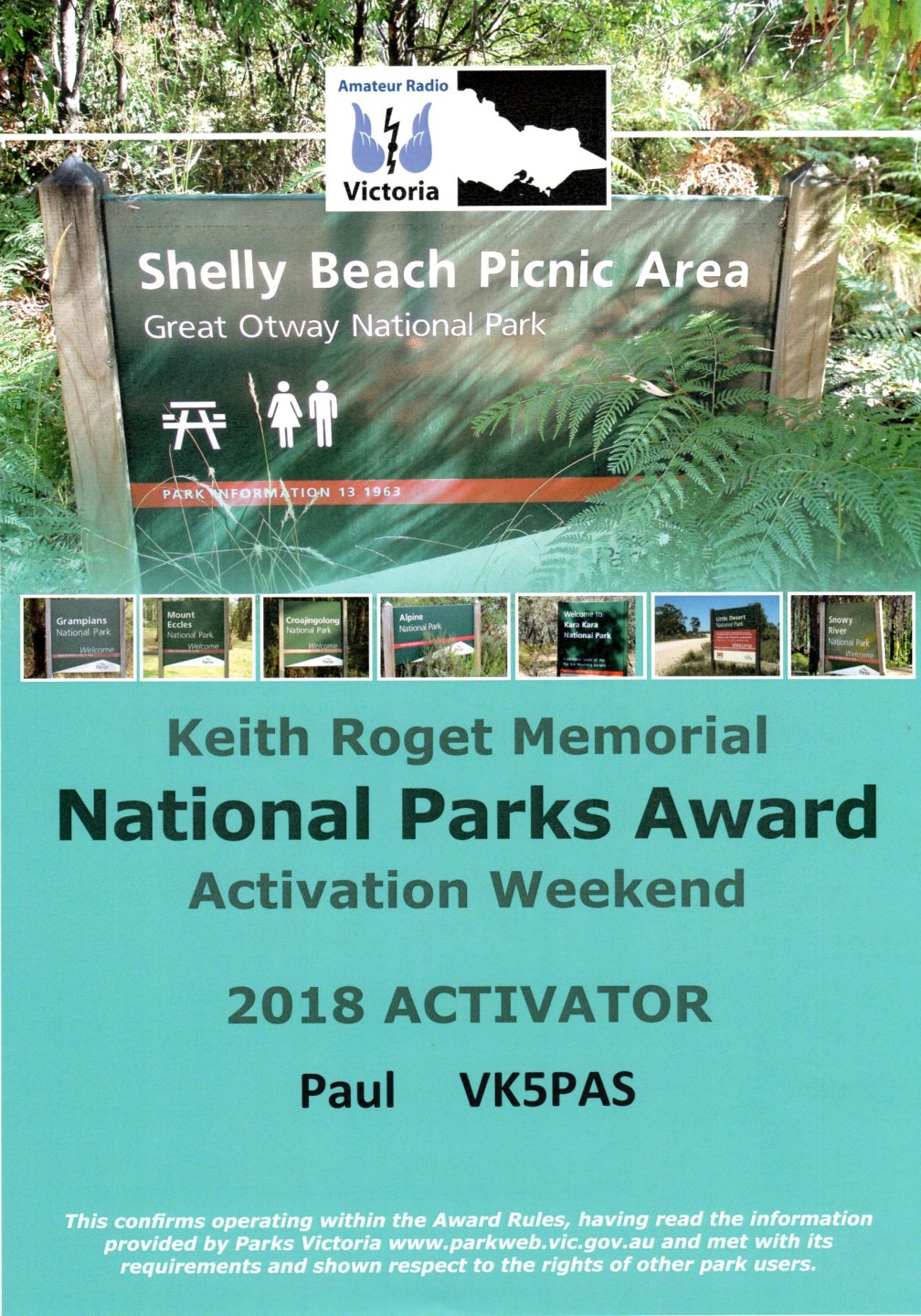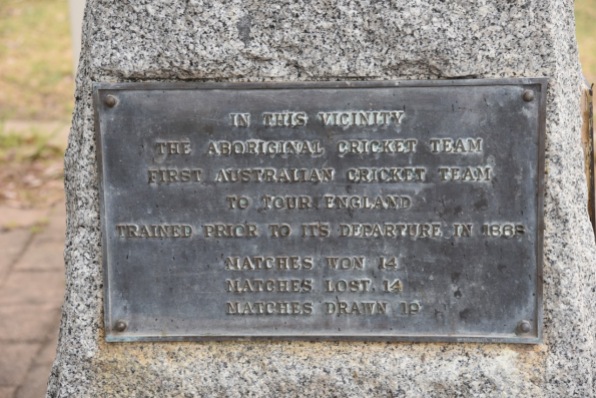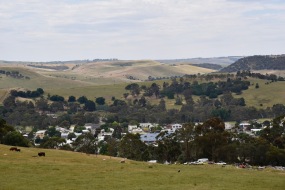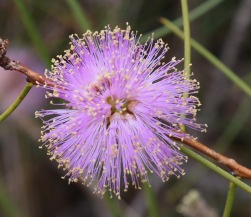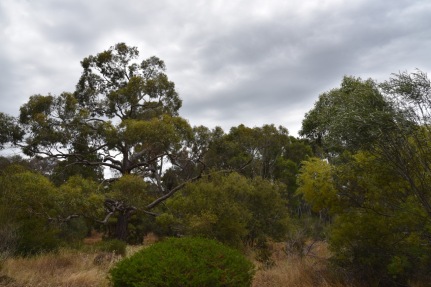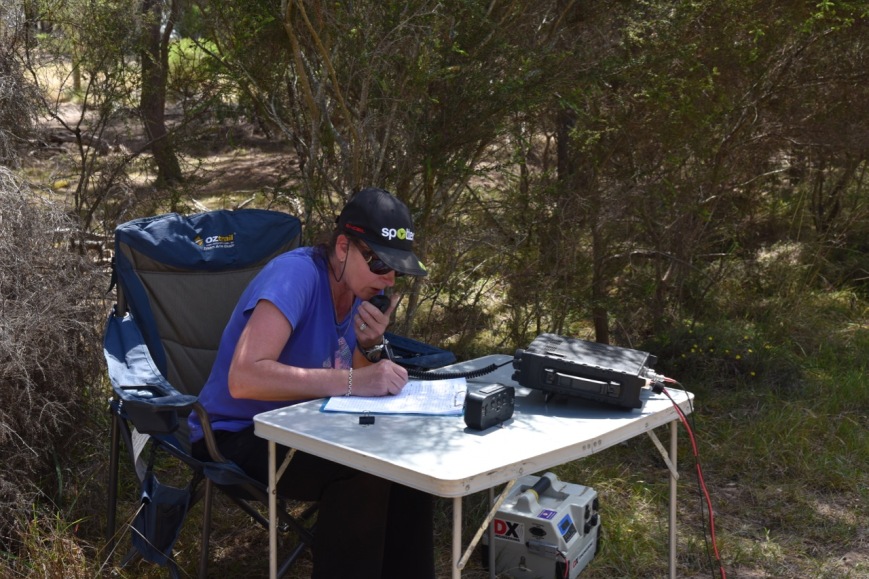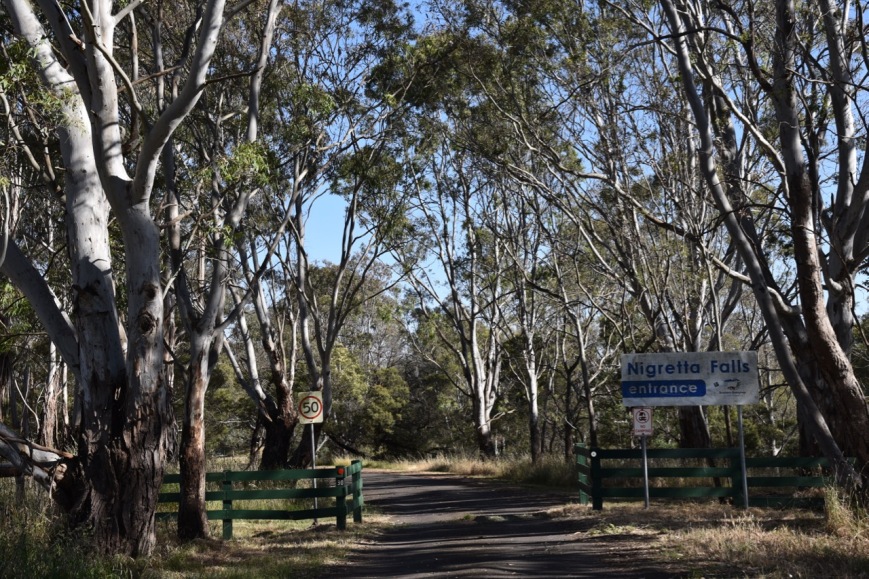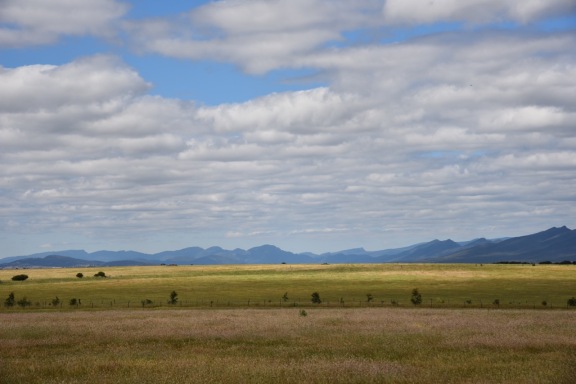After leaving Penshurst we headed to Mount Dundas VK3/ VS-045. The summit is located near the town of Cavendish, and is about 320 km west of the city of Melbourne.
We headed north along the Penshurst-Dunkeld Road and soon reached the little town of Dunkeld. We stopped briefly to have a look at the information boards just outside of the town, and admire Mount Sturgeon and Mount Abrupt, both of which are SOTA summits.
We had a very quick look at the town of Dunkeld, and we both agreed that we would have to come back here for a better look around. The area here is the traditional home of the Djab wurrung aboriginal people. The first Europeans to settle here were pastoralists during the late 1830’s. A small settlement developed and was known as Mount Sturgeon. By 1854 the township was known as Dunkeld due to the majority of settlers being of Scottish origin. It was named after a Scottish town which was the principal locality of the Caledonian picts in Roman times.
We then drove north west along the Dunkeld-Cavendish Road, admiring the Grampian Mountains which were to our north east.
We then reached the town of Cavendish, which was settled during the early 1950’s. We stopped to have a look at the old Cavendish Gaol, built of bluestone, and erected in 1862, at the cost of 640 pounds (about $1,280.00). The first inmate was housed on the 3rd day of October 1862, with PC Kennedy the first watch house keeper.
Inside the cell is a very interesting collection of photographs and police documents.
Nearby is an old settlers cottage, known as Smiths House. It was built in Cavendish in the 1850’s and was last occupied by the Hadden family in the 1960’s. It has been restored and furnished, and is an example of the original two room cottage of its time.
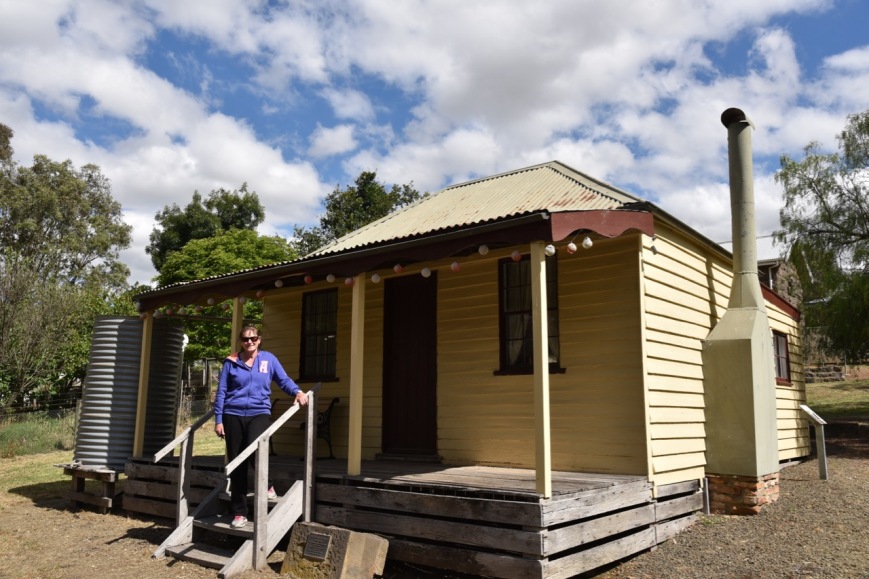
I had the Bunyip Hotel written down on my list of things to visit whilst in Cavendish, but we were running short of time, and didn’t get the opportunity of paying the pub a visit. There is also a Settlers Walk in Cavendish which follows the banks of the Wannon River. Marija and I both agreed that we would need to come back to Cavendish.
We headed out of Cavendish on the Natimuk-Hamilton Road and soon reached Dundas Gap Road where we turned left. A few km up the road we reached Mount Dundas Road and the start of the Mount Dundas Scenic Reserve, which does not yet qualify for the WWFF/VKFF program.
Mount Dundas is 459 metres above sea level and is worth just 1 point in the Summits on the Air (SOTA) program. Prior to our visit, the summit had been activated a total of 4 times. I had previously activated the summit back in November 2014. In fact this was the first time the summit had been activated.
The road to the top is dirt, but it is in good condition and easily passable in a conventional vehicle. On top of the summit you will find a large array of communications towers and equipment, and a trig point.
And there are some very nice views of the surrounding countryside.
This slideshow requires JavaScript.
We set up just down from the communications equipment. There was just enough room to string out the 20/40/80m linked dipole. My first contact was with SOTA regular Nev VK5WG, followed by Les VK5KLV, Ian VK5IS, and then Adrian VK5FANA. I had my 4 contacts and had qualified the summit. I logged just the 1 further station, Sven VK2ISO, before handing the microphone over to Marija.

Marija’s first contact was with Les VK5KLV, followed by Dennis VK2HHA, Adrian VK5FANA, and then Compton VK2HRX. Marija had qualified the summit. Marija logged a further 2 stations, Jim Vk2FADV and then Ian VK1DI.
I then called CQ for a few more minutes on 40m, logging 5 stations from VK1, VK2 and VK5, before heading to 3.610 on the 80m band. I there logged 2 stations, Andy VK5LA and Peter VK3PF mobile. Unlike 40m, there was an strength 5 noise here on 80m. Undoubtedly from the communications equipment on the summit.
To conclude the activation I called CQ on 14.310 on the 20m band where I logged a total of 8 stations from VK2, VK3, and VK4.

Marija worked the following stations:-

I worked the following stations:-

We packed up and headed off to Tarrington. That evening was a special festival occurring in the town, known as Laternenfest, or Festival of the Lanterns. It is the celebration of the life of a man who helped the poor. German communities celebrated Laternenfest in honour of St Martin who was known for his generosity of spirit. He brought light into poor people’s lives, and this is symbolised by the lights of the lantern parades.
The Laternenfest featured the lantern parade, a stein holding challenge, traditional German dancing and culture, and plenty of traditional German food and beer.
This slideshow requires JavaScript.
For tea we had German sausages in bread with sauerkraut, and some home made German cakes. And to wash it down, some nice cold beer.
As part of the festival, the St Michaels Church at Tarrington was opened up for tours. The foundation stone for the church was laid in July 1926. This is the fourth church in Tarrington, with the first being built in 1854 by Lutherans who had emigrated from the Kingdom of Prussia. We even got to ring the church bells. St Michael’s bells were the largest in the southern hemisphere when the church was built.
This slideshow requires JavaScript.
The stein holding competition was particularly interesting. The juniors started off and it was quite funny seeing the expression on the faces of some of the children.
It was then time for the adults. The winner held the stein out in front of him for around 8 minutes, no easy feat.
It was starting to get dark, and the sun shining off the Tarrington church was quite impressive.
It was then time for the carrying of the lanterns, with the procession led by two drummers. They did one lap of the church and the local oval and then returned to the main area.
It was the end of a really enjoyable evening. I have researched my family history, and this had a special place considering my mum’s Prussian background. She would have certainly enjoyed this evening.
References.
Australia’s Christian Heritage, 2018, <https://www.churchesaustralia.org/list-of-churches/denominations/lutheran/directory/814-st-michaeland%2339%3Bs-lutheran-church>, viewed 22nd December 2018
Wikipedia, 2018, <https://en.wikipedia.org/wiki/Dunkeld,_Victoria>, viewed 22nd December 2018
Wikipedia, 2018, <https://en.wikipedia.org/wiki/Cavendish,_Victoria>, viewed 22nd December 2018






